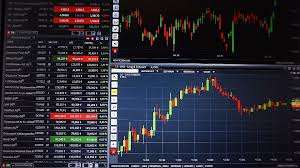We would like to hear from you with any feedback about our website or products.
Understanding Forex Trading Scams Protect Your Investments

Understanding Forex Trading Scams: Protect Your Investments
The world of forex trading is both exhilarating and treacherous. While there is significant potential to earn profits, the landscape is rife with scams that can strip away hard-earned money in the blink of an eye. Finding reliable information is crucial, and utilizing resources like forex trading scams Turkish Trading Platforms can be a starting point for ensuring the legitimacy of your trading endeavors. This article delves into common forex trading scams, how to identify them, and what steps you can take to protect yourself.
What is Forex Trading?
Forex trading, or foreign exchange trading, involves the exchange of currencies on a global market. This market operates 24 hours a day and offers significant liquidity, making it attractive to traders and investors. While legitimate traders can earn substantial profits, the high potential for returns also attracts scammers eager to exploit uninformed individuals.
Common Types of Forex Trading Scams
Understanding the various types of scams prevalent in the forex trading space is essential for safeguarding your investments. Here are several common types of forex scams:
1. Ponzi Schemes
Ponzi schemes entice investors with promises of high returns with minimal risk. In reality, the returns are paid out from the capital of new investors rather than any legitimate profit. As the scheme grows, it becomes increasingly difficult to sustain, inevitably leading to its collapse, leaving many investors with substantial losses.
2. Signal Seller Scams
Many scammers offer to provide trading signals, which are supposed to guide investors on when to buy or sell currencies. Some may charge fees for these signals, which often turn out to be worthless or misleading. Legitimate trading signals can be helpful, but it’s essential to verify the track record of those offering them.
3. Phony Forex Brokers
Some brokers promise better-than-market conditions and attract investors with flashy promotional tactics. These brokers may be unregulated and run off with investors’ funds once they’ve garnered trust. Always ensure you are trading with a reputable and regulated broker by checking their licensing status with appropriate financial authorities.
4. Account Management Scams
In these scams, a ‘professional’ trader claims they can manage your account better than you can. They promise high returns while asking you to hand over control of your capital. In most cases, these “professionals” disappear once they’ve taken your funds, leaving you with little recourse to recover your investment.
5. Fake Trading Platforms
Scammers create fake trading platforms that mimic legitimate services. Once users deposit their money, they often find it impossible to withdraw. To avoid this trap, always conduct thorough research before choosing a platform and read reviews from other traders.
How to Identify Forex Trading Scams
Identifying forex scams may seem daunting, but there are several red flags to watch for:
1. Unusually High Returns

If a broker or investment scheme promises returns that seem too good to be true, they likely are. Normal forex trading has its ups and downs, and no legitimate investor can guarantee consistent profits.
2. Lack of Regulation
Always check whether a broker is registered with financial regulatory bodies. In many countries, regulators provide a list of licensed entities, and if a broker isn’t on that list, consider looking elsewhere.
3. Complex Strategies
If someone is trying to sell you a complicated investment strategy that is hard to understand, be cautious. Scammers often use complex jargon to confuse and mislead potential victims.
4. Pressure Tactics
Scammers often pressure individuals to invest quickly, claiming that they will miss out on a ‘once-in-a-lifetime’ opportunity. Legitimate investment opportunities won’t rush you into decisions without due diligence.
Protecting Yourself from Forex Scams
Knowledge and due diligence are your best defenses against forex scams. Here are some actionable steps you can take:
1. Educate Yourself
Familiarize yourself with how forex trading works, the risks involved, and what legitimate investments look like. Knowledge of the market is empowering and can significantly reduce your risk of falling for scams.
2. Verify Brokers
Always check the regulatory status of any broker before investing. Research their track record and read reviews from other traders. Engage with credible online communities to gather insights on trustworthy brokers.
3. Use Demo Accounts
Most reputable brokers offer demo accounts which allow potential clients to trade with virtual funds. Use this feature not only to test your strategies but to assess the broker’s platform before committing real money.
4. Consult Professionals
If you’re unsure about a trading opportunity, consider speaking with a financial advisor or consultant. They can provide professional opinions and help you make informed decisions regarding your investments.
Conclusion
Navigating the forex trading landscape requires vigilance, education, and a keen eye for detail. With scams lurking at every corner, staying informed is key to protecting your investment. By recognizing the signs of deceit and conducting thorough research, you can take steps toward a safer trading experience. Remember, if something seems too good to be true, it probably is. Be proactive, stay informed, and trade wisely.
